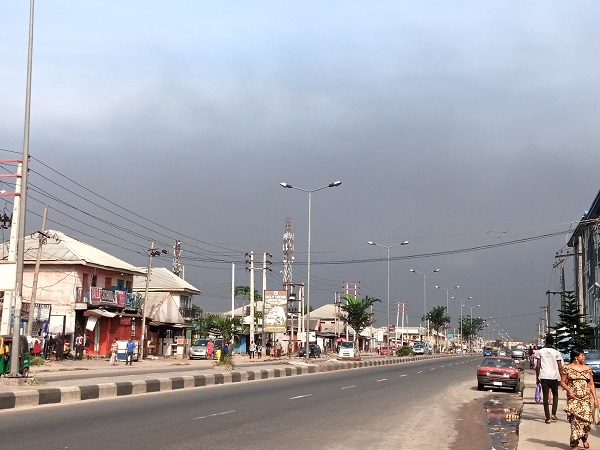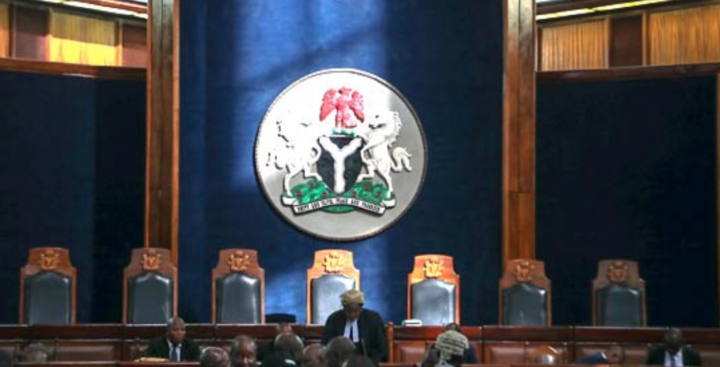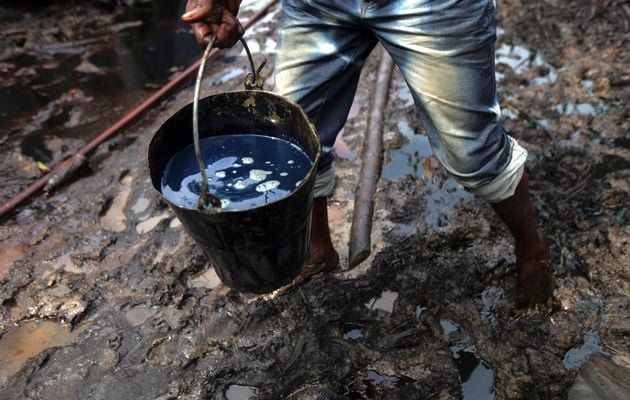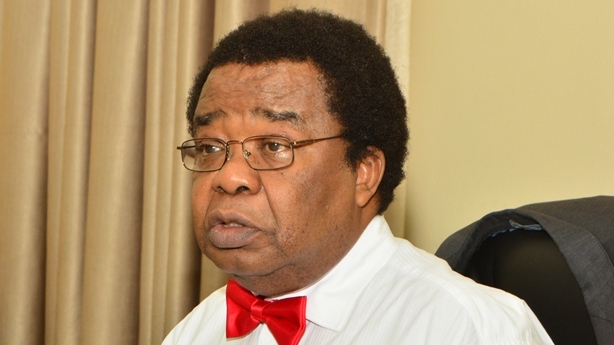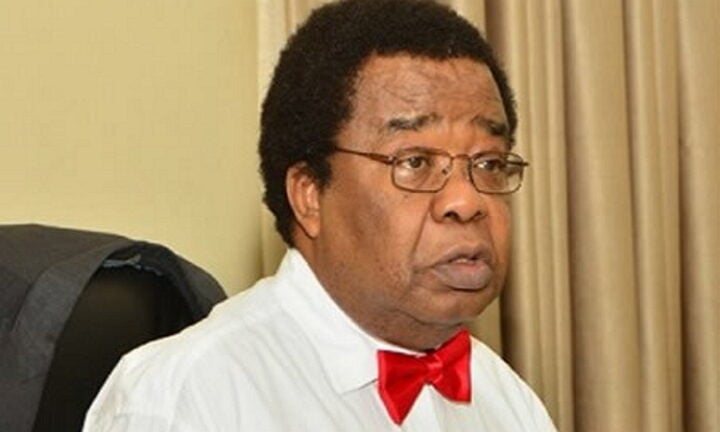Last week, in this column, we looked at the scientific, social, economic, and environmental challenges of soot in Rivers state, as representative of what is happening in the whole country. We further posited that all levels of government, security and regulatory agencies have disastrously failed to rise to the occasion of discharging their statutory and moral obligation of protecting lives. The minimum expectation of the people is that their government should confront this issue and save citizens’ exposure to unnecessary health hazards and needless death. We vehemently and firmly argued the need for all stakeholders to urgently address this air pollution that constitutes a severe public health hazard. Fortunately, even with little or no intervention thus far, the consequence of the soot is still benign compared to what will happen in a few years if serious interventions are not done by all stakeholders now.
The occurrence of soot is not peculiar to the Niger Delta of Nigeria, so there are models of how soot or air pollution generally was tackled in other parts of the world that we can learn from. Three cases of exceptional air pollution across the globe that posed indeterminate danger stand out; the 1952 ‘Great Smog of London’ which left 4,000 persons dead in weeks, the two-decade long air pollution of Beijing and other Chinese cities, and the 2018 New Delhi, Mumbai, and other Indian cities air pollution. These three cases and more offers us historical examples of responses and mitigating strategies adopted in other climes to the challenge of soot and air pollution.
It is the truth that when a people are confronted with novel environmental challenges or natural occurrences that threaten lives, as we have in the case of soot, governments usually treat it as an emergency that calls for the deployment of all state resources to protect their people. This social contract defines the state’s relationship with the people, especially when there is imminent danger. This applies in this case where there is a sense responsibility and urgency.
Based on our analyses of the responses of these three different governmental approaches to solving the soot problem, we deduced a process that is a typology of a systematic and procedural approach to tackling soot in any part of the world. However, there is a need for a bespoke solution adapted to the local circumstances.
Advertisement
The most critical element of this typology, due to the scale and complex nature of soot, is an extensive state and national level coordinated action plan. With the London smog, the parliament enacted a “clean air act” and worked with major stakeholders to turn the tide and drastically reduce air pollution in London. When Beijing faced a similar challenge, the government implemented a state air pollution prevention and control action plan to improve air quality and minimise soot in a defined period. India responded with Mumbai Clean Air Action Plan. These interventions involved multiple stakeholders, including experts fighting a common cause under one roof with defined roadmap and integrated master plan.
Any bespoke solution for this problem in Rivers state and Bayelsa state must also have a coordinated action plan drawn up by the government in conjunction with multi-agency and multi-stakeholder involvement. Like in Beijing, a state air pollution prevention and control action plan targeted at improving air quality and reducing soot pollution in a defined period must be developed and implemented in the states. Ultimately the challenge of air pollution and soot is beyond what individuals can handle. The final responsibility rest with the government and governments at all levels must rise to the occasion and save the people the agony of facing death. The federal government, Rivers state and Bayelsa state governments must champion a solution to the soot problem.
The first part of the action plan must be public advocacy and a massive public enlightenment campaign on the health implications of illegal refining and consequential toxic air, specifically soot pollution. These information campaigns will aim to influence public understanding of the phenomena and instigate behavioural change. China did the ‘Beautiful China’ campaign, which required all Chinese cities to achieve a given air quality limit as recommended by the World Health Organization (WHO).
Advertisement
Then there is an urgent need for toxicity study for human risk assessment and mitigation; and an emission inventory. Emission inventory will help establish the volume, nature, and source of all air contaminants to facilitate the design of mitigation measures. This is important considering the multiple sources of soot, especially those connected to high-level economic activities such as petrochemical industries, gas flaring, fertiliser firms, that have become a behemoth of sorts almost beyond state control.
The next part is the provision of supportive legislation at state and federal levels and stringent enforcement of such legislation at all levels. The government needs to outlaw and criminalise the illegal refining of crude. This involves the state security operatives and the legal system that robustly prosecute all known cases of such violation of air pollution laws. Though there are relevant laws against it, enforcement has been weak or non-existence because of the economic complicity of key enforcement actors. Control actions against illegal refiners must be robust, extensive, and comprehensive, appreciating the sophisticated nature of the illegal refining of oil and the concomitant illegal economy that has ensued from there. It must be extensive and complex and require the cooperation of different levels of government and multiple agencies. The laws must include stringent punishment and make individuals and communities vicariously liable for illegal refining in their areas.
The action plan will involve establishing an all-around monitoring mechanism for illegal refining, tire burning, and soot generating activities using technology. To strengthen this initiative will be creating a 24/7 contact line for intelligence gathering and community feedback. 24/7 monitoring of these activities using various surveillance and environmental monitoring technology and devices is necessary.
Besides, multi-agency and community monitoring will complement experts in this monitoring. The government should engage the local people to provide local surveillance. Who is best to enforce and monitor such anti-illegal mining laws other than local people in the community, who bear the brunt of the soot menace? Therefore, the government should provide a helpline to all locals to report such illegal activities within the community.
Advertisement
The next part will involve thoroughly cleaning of the messed-up environment using technology. Improving the air quality to an acceptable level must be achieved. The US Environmental Protection Agency approved clean air programmes that can cut air pollution by 78% and radically improve air quality in each location to protect public health and the environment. The Nigerian government should adopt this. The Ogoni dedicated pollution cleaning programme has been slow and not comprehensive. We should learn from that exercise and use our findings to improve the new clean up exercise targeting soot. There is available technology to clean air pollutants and can be deployed if the political will and leadership needed to serve the people are available.
Beijing, Shanghai, New York, London, and Mumbai provided a ready example of megacities that successfully mitigated soot pollution or progressively achieved clean air due to innovative collaboration between national and regional governments. In the Beijing case of 2008, from one-year continuous innovative solutions and monitoring, local industrial concerns reduced their excessive pollution and were responsible for cutting out 2/3 of the soot emission in Beijing. Joyce Msuya, acting executive director of UN Environment, posits, “this improvement in air quality didn’t happen by accident. It was the result of an enormous investment of time, resources, and political will. Understanding Beijing’s air pollution story is crucial for any nation, district or municipality that wishes to follow a similar path”.
To tackle the three primary sources of soot in Rivers and Nigeria – illegal refining, gas flare/ petrochemical industries, and tire burning – requires technological innovation, capital investments, complex logistics, and enormous political will. Many of the solutions are evident and available, but the failure of governance and leadership creates obstacles to dealing with the problem of soot endangering lives.
There is no doubting that the soot problem is gradually turning into a public health crisis and requires to be treated as such by all stakeholders. The biggest challenge of soot particulate emission is rooted in the fact that it is a complex illegal economy that sustains a substantial population of youths in Rivers and Bayelsa states. The challenge is providing an alternative economy for these youths to discourage them from engaging in this illegal activity with tremendous health implications. Any attempt to solve this problem must tackle the economic imperatives and provide alternatives. It will be just a pipedream to assume that youth’s dependent on these illegal activities of bunkering and illegal refining of crude will jettison these activities simply because they are informed to do so. Therefore, I advocate a combined economic solution provided by the state and federal government for youths in these communities plagued with illegal refining activities and all youths involved in one way or another down the value chain.
Advertisement
When the government at the local level plays the ostrich and pretends that all is well, there is no hope of a sustainable solution soon. The locus of operation and push for a better environment for the people of Rivers state resides with the local people and their government. The popular Ijaw truism is that “he who is sick seeks the doctor”. Rivers state is sick from debilitating and corrosive soot pollution. It needs as much help as it can from the federal government, international organisations, and other stakeholders to tackle the soot problem. But it must be seen by all as doing its best to tackle the problem or at least champion the cause of finding solutions so that other stakeholders will come in to help.
It is also time the people and government of Rivers state and other states in the Niger Delta stood against the overarching socio-economic and psychological sphere dominated by a sense of entitlement and a desire to justify engaging in dangerous and illegal economic activities because of the cruel and unwholesome treatment meted out to them by the Nigerian state and international oil companies.
Advertisement
This pervading psychology which situates a doctrine of ownership of crude oil within their space, has made youths straddle between the borderlines of criminality and agitation for better treatment by all stakeholders in the oil and gas sector. Even if such a claim is justified, illegal fuel refining destroys the environment and lives , and is counterproductive. How much money will non-state actors and non-corporate actors make from these unlawful activities to justify soot’s health, economic and social implications, and costs? We must count the actual cost of these activities’ vis-a-vis the supposed gain.
In conclusion, now is the time to work hard to solve the soot problem. The government must adopt a bi-partisan, multi-agency, and collaborative approach to tackle this menace. We must not rest until our airs are clean again and we have a breath of fresh air, literally, in Rivers state and by extension in Nigeria.
Advertisement
Views expressed by contributors are strictly personal and not of TheCable.

